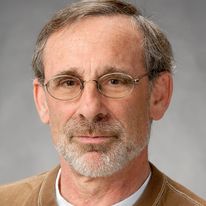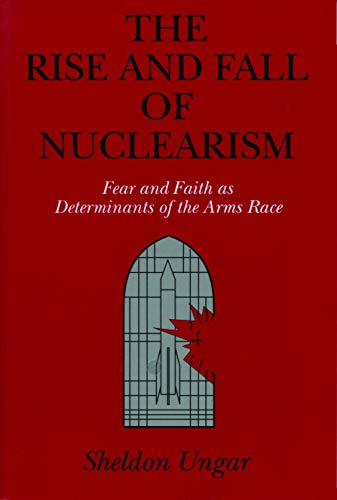博文
一个陌生的人和他的两篇有趣的文章
|

最近为了写点文字,查了几篇文献,突然看到加拿大多伦多大学社会科学系的昂加尔教授的两篇文章,写的很棒,值得记录一笔。
1、Ignorance as an under-identified social problem
Sheldon Ungar
【Br J Sociol . 2008 Jun;59(2):301-26. doi: 10.1111/j.1468-4446.2008.00195.x.】
Abstract: This paper examines the persistence and intensification of ignorance in the ostensible knowledge society. Given the ubiquity of ignorance, it focuses on research and observations dealing with functional knowledge deficits that challenge the ideal of the well-informed citizen. These developments are traced back to the contradictory dynamics of the knowledge society, specifically information explosions in the knowledge economy and the resultant knowledge-ignorance paradox. The theoretical unfolding of this paradox in terms of entry and speech barriers suggests that pockets of observed public knowledge - rather than ignorance - are exceptional and require specific explanation. While ignorance among individuals, as well as experts and organizations, is a serious social problem with potentially deadly consequences, ignorance remains relatively unrecognized since it has major liabilities as a marketable issue. The conclusion points to the importance of future research on the cultural and institutional production of ignorance.
这篇文章发表在《英格兰社会学杂志》2008(2)期上,这是文章的摘要,大意是说:
题目:无知是一个未被充分认识的社会问题
摘要:文章考察了表面上的知识社会中无知的持续和强化。鉴于无知的普遍性,它专注于研究和观察功能性知识缺陷,这些缺陷挑战了受过良好教育的公民的理想。这些发展可以追溯到知识社会的矛盾动态,特别是知识经济中的信息爆炸和由此产生的知识——无知悖论。这一悖论在进入和言论障碍方面的理论展开表明,观察到的公共知识——而不是无知——是例外的,需要具体的解释。尽管个人、专家和组织的无知是一个严重的社会问题,可能会造成致命后果,但无知仍然相对未被承认,因为它作为一个有市场的问题负有重大责任。结论指出了未来研究无知的文化和制度生产的重要性。

2、Knowledge, ignorance and the popular culture: climate change versus the ozone hole
S. Ungar
【Published 1 July 2000 Sociology, Environmental Science, Public Understanding of Science】
This paper begins with the “knowledge-ignorance paradox”—the process by which the growth of specialized knowledge results in a simultaneous increase in ignorance. It then outlines the roles of personal and social motivations, institutional decisions, the public culture, and technology in establishing consensual guidelines for ignorance. The upshot is a sociological model of how the “knowledge society” militates against the acquisition of scientific knowledge. Given the assumption of widespread scientific illiteracy, the paper tries to show why the ozone hole was capable of engendering some public understanding and concern, while climate change failed to do so. The ozone threat encouraged the acquisition of knowledge because it was allied and resonated with easy-to-understand bridging metaphors derived from the popular culture. It also engendered a “hot crisis.” That is, it provided a sense of immediate and concrete risk with everyday relevance. Climate change fails at both of these criteria and remains in a public limbo.
文章大意是说:
题目:知识、无知和流行文化:气候变化与臭氧空洞
摘要:文章从“知识-无知悖论”开始,即专业知识的增长导致无知同时增加的过程。然后,它概述了个人和社会动机、机构决策、公共文化和技术在为无知建立共识指导方针方面的作用。其结果是“知识社会”如何阻碍科学知识的获取的社会学模型。鉴于普遍存在科学文盲的假设,该论文试图说明为什么臭氧空洞能够引起公众的理解和关注,而气候变化却未能做到这一点。臭氧威胁鼓励了知识的获取,因为它与流行文化中易于理解的桥接隐喻相结合并产生共鸣。它还引发了一场“热危机”。也就是说,它提供了一种与日常相关的即时和具体风险感。气候变化在这两个方面都失败了,气候变化在这两个标准上都不合格,仍处于公众的边缘。【这是作者2000年发表的文章,时至今日很多道理并没有变,20多年过后仍然可读,这才叫研究】

关于作者信息:
Sheldon Ungar is a professor in the Sociology department at University of Toronto, Scarborough. His research focuses on the sociological analysis of climate change, media context, moral panics, and risk society. He is also the book author of "The Rise and Fall of Nuclearism".
大意是说:谢尔顿●昂加尔(Sheldon Ungar)是多伦多大学(斯卡布罗)社会学系的教授。他的研究重点是气候变化、媒体语境、道德恐慌和风险社会的社会学分析。他还是《核主义的兴衰》一书的作者【中间图片就是那本书的封面】。
据研究之门(Reaearch Gate)的不完全数据显示,昂加尔的发表记录如下:
37——Publications;
13,969——Reads ;
1,972——Citations。
很遗憾,关于作者的更多信息很多网页都打不开,维基百科也早就封掉了,现在找点有用的信息真的太难了,以后遇到了再补充吧。刚开学,连日阴雨,再加上遇上倒春寒,太冷了,不写了,贴一张春天的照片吧!


说明:文中图片来自网络,没有任何商业目的,仅供欣赏,特此致谢!
2024-2-25于南方临屏涂鸦
https://blog.sciencenet.cn/blog-829-1422963.html
上一篇:人才红利为何总是姗姗来迟?
下一篇:关于基础研究评价的三个黄金准则